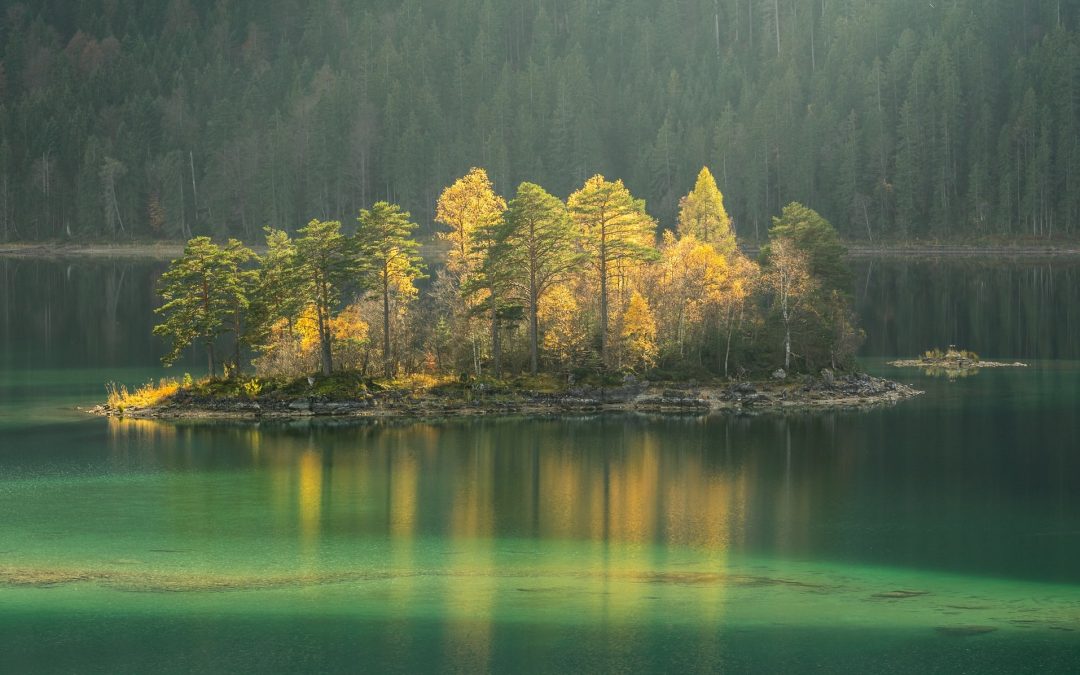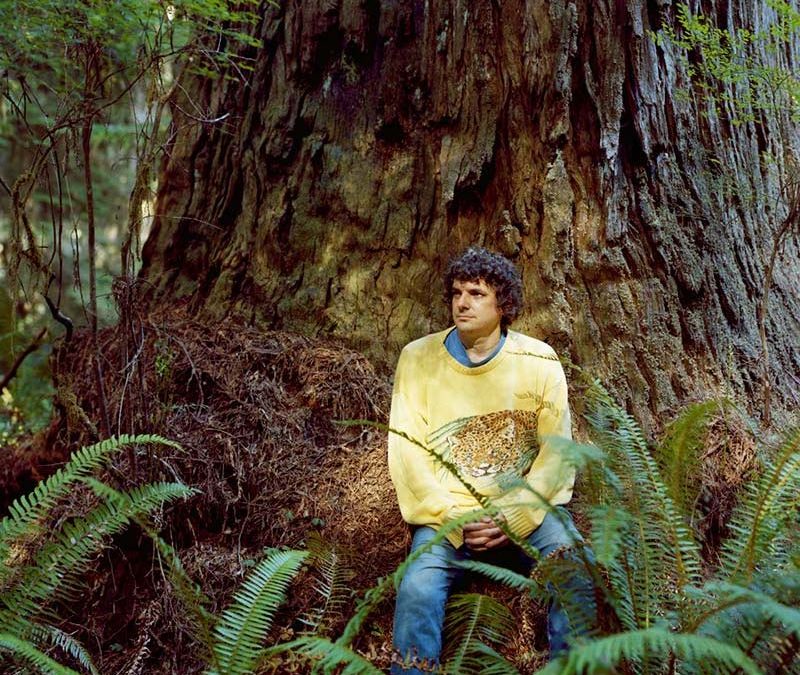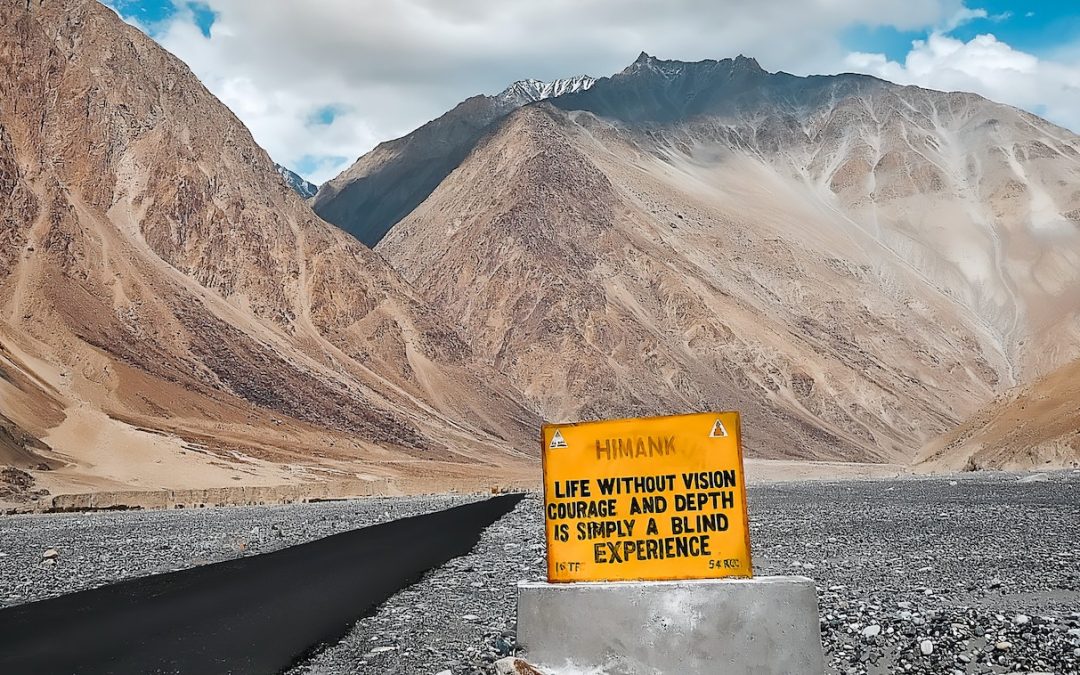By Chris Hedges / Original to ScheerPost
Rulers divide the world into worthy and unworthy victims, those we are allowed to pity, such as Ukrainians enduring the hell of modern warfare, and those whose suffering is minimized, dismissed, or ignored. The terror we and our allies carry out against Iraqi, Palestinian, Syrian, Libyan, Somali and Yemeni civilians is part of the regrettable cost of war. We, echoing the empty promises from Moscow, claim we do not target civilians. Rulers always paint their militaries as humane, there to serve and protect. Collateral damage happens, but it is regrettable.
This lie can only be sustained among those who are unfamiliar with the explosive ordinance and large kill zones of missiles, iron fragmentation bombs, mortar, artillery and tank shells, and belt-fed machine guns. This bifurcation into worthy and unworthy victims, as Edward Herman and Noam Chomsky point out in “Manufacturing Consent: The Political Economy of the Mass Media,” is a key component of propaganda, especially in war. The Russian-speaking population in Ukraine, to Moscow, are worthy victims. Russia is their savior: The 1.5 million refugees and the millions of Ukrainian families cowering in basements, car parks and subway stations, are unworthy “Nazis.”
Worthy victims allow citizens to see themselves as empathetic, compassionate, and just. Worthy victims are an effective tool to demonize the aggressor. They are used to obliterate nuance and ambiguity. Mention the provocations carried out by the western alliance with the expansion of NATO beyond the borders of a unified Germany, a violation of promises made to Moscow in 1990; the stationing of of NATO troops and missile batteries in Eastern Europe; the U.S. involvement in the ouster in 2014 of Ukraine President Viktor Yanukovych, which led to the civil war in the east of Ukraine between Russian-backed separatists and Ukraine’s army, a conflict that has claimed tens of thousands of lives, and you are dismissed as a Putin apologist.
It is to taint the sainthood of the worthy victims, and by extension ourselves. We are good. They are evil. Worthy victims are used not only to express sanctimonious outrage, but to stoke self-adulation and a poisonous nationalism. The cause becomes sacred, a religious crusade. Fact-based evidence is abandoned, as it was during the calls to invade Iraq. Charlatans, liars, con artists, fake defectors, and opportunists become experts, used to fuel the conflict.
Celebrities, who, like the powerful, carefully orchestrate their public image, pour out their hearts to worthy victims. Hollywood stars such as George Clooney made trips to Darfur to denounce the war crimes being committed by Khartoum at the same time the US was killing scores of civilians in Iraq and Afghanistan. The war in Iraq was as savage as the slaughter in Darfur, but to express outrage at what was happening to unworthy victims was to become branded as the enemy, who of course, like Putin or Saddam Hussein, is always the new Hitler.
Saddam Hussein’s attacks on the Kurds, considered worthy victims, saw an international outcry while Israeli persecution of the Palestinians, subjected to relentless bombing campaigns by the Israeli air force and its artillery and tank units, with hundreds of dead and wounded, was, at best, an afterthought. At the height of Stalin’s purges in the 1930s, worthy victims were the Republicans battling the fascists in the Spanish civil war. Soviet citizens were mobilized to send aid and assistance. Unworthy victims were the millions of people Stalin executed, sometimes after tawdry show trials, and sent to the gulags.
While I was reporting from El Salvador in 1984, the Catholic priest Jerzy Popiełuszko was murdered by the regime in Poland. His death was used to excoriate the Polish communist government, a stark contrast to the response of the Reagan administration to the rape and murder of four Catholic missionaries in 1980 in El Salvador by the Salvadorean National Guard. President Ronald Reagan’s administration sought to blame the three nuns and a lay worker for their own deaths. Jeane Kirkpatrick, Reagan’s Ambassador to the United Nations, said, “The nuns were not just nuns. The nuns were also political activists.” Secretary of State Alexander Haig speculated that “perhaps they ran a roadblock.”
For the Reagan administration, the murdered churchwomen were unworthy victims. The right-wing government in El Salvador, armed and backed by the United States, joked at the time, Haz patria, mata un cura (Be a patriot, kill a priest). Archbishop Óscar Romero had been assassinated in March of 1980. Nine years later it would gun down six Jesuits and two others at their residence on the campus of Central American University in San Salvador. Between 1977 and 1989, death squads and soldiers killed 13 priests in El Salvador.
It is not that worthy victims do not suffer, nor that they are not deserving of our support and compassion, it is that worthy victims alone are rendered human, people like us, and unworthy victims are not. It helps, of course, when, as in Ukraine, they are white. But the missionaries murdered in El Salvador were also white and American and yet it was not enough to shake US support for the country’s military dictatorship.
“The mass media never explain why Andrei Sakharov is worthy and Jose Luis Massera, in Uruguay, is unworthy,” Herman and Chomsky write. “The attention and general dichotomization occur ‘naturally’ as a result of the working of the filters, but the result is the same as if a commissar had instructed the media: ‘Concentrate on the victims of enemy powers and forget about the victims of friends.’ Reports of the abuses of worthy victims not only pass through the filters; they may also become the basis of sustained propaganda campaigns. If the government or corporate community and the media feel that a story is useful as well as dramatic, they focus on it intensively and use it to enlighten the public.”
“This was true, for example, of the shooting down by the Soviets of the Korean airliner KAL 007 in early September 1983, which permitted an extended campaign of denigration of an official enemy and greatly advanced Reagan administration arms plans,” Herman and Chomsky write. “As Bernard Gwertzman noted complacently in the New York Times of August 31, 1984, US officials ‘assert that worldwide criticism of the Soviet handling of the crisis has strengthened the United States in its relations with Moscow.’ In sharp contrast, the shooting down by Israel of a Libyan civilian airliner in February I973 led to no outcry in the West, no denunciations for ‘cold-blooded murder,’ and no boycott. This difference in treatment was explained by the New York Times precisely on the grounds of utility in a 1973 editorial: ‘No useful purpose is served by an acrimonious debate over the assignment of blame for the downing of a Libyan airliner in the Sinai Peninsula last week.’ There was a very ‘useful purpose’ served by focusing on the Soviet act, and a massive propaganda campaign ensued.”
It is impossible to hold those responsible for war crimes accountable if worthy victims are deserving of justice and unworthy victims are not. If Russia should be crippled with sanctions for invading Ukraine, which I believe it should, the United States should have been crippled with sanctions for invading Iraq, a war launched on the basis of lies and fabricated evidence.
Imagine if America’s largest banks, J.P Morgan Chase, Citibank, Bank of America and Wells Fargo were cut off from the international banking system. Imagine if our oligarchs, Jeff Bezos, Jamie Diamond, Bill Gates, and Elon Musk, as venal as Russian oligarchs, had their assets frozen and estates and luxury yachts seized. (Bezos’ yacht is the largest in the world, cost an estimated $500 million and is about 57 feet longer than a football field.) Imagine if leading political figures, such as George W. Bush and Dick Cheney and US “oligarchs” were blocked from traveling under visa restrictions. Imagine if the world’s biggest shipping lines suspended shipments to and from the United States. Imagine if US international media news outlets were forced off the air. Imagine if we were blocked from purchasing spare parts for our commercial airlines and our airliners were banned from European air space. Imagine if our athletes were barred from hosting or participating in international sporting events. Imagine if our symphony conductors and opera stars were forbidden from performing unless they denounced the Iraq war and, in a kind of perverted loyalty oath, condemned George W. Bush.
The rank hypocrisy is stunning. Some of the same officials that orchestrated the invasion of Iraq, who under international law are war criminals for carrying out a preemptive war, are now chastising Russia for its violation of international law. The US bombing campaign of Iraqi urban centers, called “Shock and Awe,” saw the dropping of 3,000 bombs on civilian areas that killed over 7,000 noncombatants in the first two months of the war. Russia has yet to go to this extreme.
“I have argued that when you invade a sovereign nation, that is a war crime,” a FOX News host said (with a straight face) recently to Condoleezza Rice, who served as Bush’s National Security adviser during the Iraq War.
“It is certainly against every principle of international law and international order and that is why throwing the book at them now in terms of economic sanctions and punishments is also a part of it,” Rice said. “And I think the world is there. Certainly, NATO is there. He’s managed to unite NATO in ways that I didn’t think I would ever see after the end of the Cold War.”
Rice inadvertently made a case for why she should be put on trial with the rest of Bush’s enablers. She famously justified the invasion of Iraq by stating: “The problem here is that there will always be some uncertainty about how quickly he can acquire nuclear weapons. But we don’t want the smoking gun to be a mushroom cloud.” Her rationale for preemptive war, which under post-Nuremberg laws is a criminal war of aggression, is no different than that peddled by Russian Foreign Minister Sergey Lavrov, who says the Russia invasion is being carried out to prevent Ukraine from obtaining nuclear weapons.
And this brings me to RT America, where I had a show called “On Contact.” RT America is now off the air after being deplatformed and unable to disseminate its content. This was long the plan of the US government. The invasion of Ukraine gave Washington the opening to shut RT down. The network had a tiny media footprint. But it gave a platform to American dissidents who challenged corporate capitalism, imperialism, war, and the American oligarchy.
My public denunciation of the invasion of Ukraine was treated very differently by RT America than my public denunciation of the Iraq war was treated by my former employer, The New York Times. RT America made no comment, publicly or privately, about my condemnation of the invasion of Ukraine in my ScheerPost column. Nor did RT comment about statements by Jesse Ventura, a Vietnam veteran and former Minnesota governor, who also had a show on RT America, and who wrote: “20 years ago, I lost my job because I opposed the Iraq War and the invasion of Iraq. Today, I still stand for peace. As I’ve said previously, I oppose this war, this invasion, and if standing up for peace costs me another job, so be it. I will always speak out against war.”
RT America was shut down six days after I denounced the invasion of Ukraine. If the network had continued, Ventura and I might have paid with our jobs, but at least for those six days they kept us on air.
The New York Times issued a formal written reprimand in 2003 that forbade me to speak about the war in Iraq, although I had been the newspaper’s Middle East Bureau Chief, had spent seven years in the Middle East and was an Arabic speaker. This reprimand set me up to be fired. If I violated the prohibition, under guild rules, the paper had grounds to terminate my employment. John Burns, another foreign correspondent at the paper, publicly supported the invasion of Iraq. He did not receive a reprimand.
My repeated warnings in public forums about the chaos and bloodbath the invasion of Iraq would trigger, which turned out to be correct, was not an opinion. It was an analysis based on years of experience in the region, including in Iraq, and an intimate understanding of the instrument of war those in the Bush White House lacked. But it challenged the dominant narrative and was silenced. This same censorship of anti-war sentiment is happening now in Russia, but we should remember it happened here during the inception and initial stages of the invasion of Iraq.
Those of us who opposed the Iraq war, no matter how much experience we had in the region, were attacked and vilified. Ventura, who had a three-year contract with MSNBC, saw his show canceled.
Those who were cheerleaders for the war, such as George Packer, Thomas Friedman, Paul Berman, Michael Ignatieff, Leon Wieseltier and Nick Kristof, who Tony Judt called “Bush’s useful idiots,” dominated the media landscape. They painted the Iraqis as oppressed, worthy victims, who the US military would set free. The plight of women under the Taliban was a rallying cry to bomb and occupy the country. These courtiers to power served the interests of the power elite and the war industry. They differentiated between worthy and unworthy victims. It was a good career move. And they knew it.
There was very little dispute about the folly of invading Iraq among reporters in the Middle East, but most did not want to jeopardize their positions by speaking publicly. They did not want my fate to become their own, especially after I was booed off a commencement stage in Rockford, Illinois for delivering an antiwar speech and became a punching bag for right-wing media. I would walk through the newsroom and reporters I had known for years looked down or turned their heads, as if I had leprosy. My career was finished. And not just at The New York Times but any major media organization, which is where I was, orphaned, when Robert Scheer recruited me to write for Truthdig, which he then edited.
What Russia is doing militarily in Ukraine, at least up to now, was more than matched by our own savagery in Iraq, Afghanistan, Syria, Libya and Vietnam. This is an inconvenient fact the press, awash in moral posturing, will not address.
No one has mastered the art of technowar and wholesale slaughter like the US military. When atrocities leak out, such as the My Lai massacre of Vietnamese civilians or the prisoners in Abu Ghraib, the press does its duty by branding them aberrations. The truth is that these killings and abuse are deliberate. They are orchestrated at the senior levels of the military. Infantry units, assisted by long ranger artillery, fighter jets, heavy bombers, missiles, drones, and helicopters level vast swaths of “enemy” territory killing most of the inhabitants. The US military during the invasion of Iraq from Kuwait created a six-mile-wide free-fire zone that killed hundreds if not thousands of Iraqis. The indiscriminate killing ignited the Iraqi insurgency.
When I entered southern Iraq in the first Gulf War it was flattened. Villages and towns were smoldering ruins. Bodies, including women and children, lay scattered on the ground. Water purification systems had been bombed. Power stations had been bombed. Schools and hospitals had been bombed. Bridges had been bombed. The United States military always wages war by “overkill,” which is why it dropped the equivalent of 640 Hiroshima-sized atomic bombs on Vietnam, most actually falling on the south where our purported Vietnamese allies resided. It unloaded in Vietnam more than 70 million tons of herbicidal agents, three million white phosphorus rockets — white phosphorus will burn its way entirely through a body — and an estimated 400,000 tons of jellied incendiary napalm.
“Thirty-five percent of the victims,” Nick Turse writes of the war in Vietnam, “died within 15 to 20 minutes.” Death from the skies, like death on the ground, was often unleashed capriciously. “It was not out of the ordinary for US troops in Vietnam to blast a whole village or bombard a wide area in an effort to kill a single sniper.”
Vietnamese villagers, including women, children, and the elderly, were often herded into tiny, barbed wire enclosures known as “cow cages.” They were subjected to electric shocks, gang raped and tortured by being hung upside down and beaten, euphemistically called “the plane ride,” until unconscious. Fingernails were ripped out. Fingers were dismembered. Detainees were slashed with knives. They were beaten senseless with baseball bats and waterboarded. Targeted assassinations, orchestrated by CIA death squads, were ubiquitous.
Wholesale destruction, including of human beings, to the US military, perhaps any military, is orgiastic. The ability to unleash sheets of automatic rifle fire, hundreds of rounds of belt-fed machine-gun fire, 90 mm tank rounds, endless grenades, mortars, and artillery shells on a village, sometimes supplemented by gigantic 2,700-pound explosive projectiles fired from battleships along the coast, was a perverted form of entertainment in Vietnam, as it became later in the Middle East. US troops litter the countryside with claymore mines. Canisters of napalm, daisy-cutter bombs, anti-personnel rockets, high-explosive rockets, incendiary rockets, cluster bombs, high-explosive shells, and iron fragmentation bombs — including the 40,000-pound bomb loads dropped by giant B-52 Strarofortress bombers — along with chemical defoliants and chemical gases dropped from the sky are our calling cards. Vast areas are designated free fire zones — a term later changed by the military to the more neutral sounding “specified strike zone” — where everyone in those zones is considered the enemy, even the elderly, women, and children.
Soldiers and marines who attempt to report the war crimes they witness can face a fate worse than being pressured, discredited, or ignored. On Sept. 12, 1969, Nick Turse writes in his book “Kill Anything That Moves: The Real American War in Vietnam,” George Chunko sent a letter to his parents explaining how his unit had entered a home that had a young Vietnamese woman, four young children, an elderly man, and a military-age male. It appeared the younger man was AWOL from the South Vietnamese army. The young man was stripped naked and tied to a tree. His wife fell to her knees and begged the soldiers for mercy. The prisoner, Chunko wrote, was “ridiculed, slapped around and [had] mud rubbed into this face.” He was then executed.
A day after he wrote the letter, Chunko was killed. Chunko’s parents, Turse writes, “suspected that their son had been murdered to cover up the crime.”
All of this remains unspoken as we express our anguish for the people of Ukraine and revel in our moral superiority. The life of a Palestinian or an Iraqi child is as precious as the life of a Ukrainian child. No one should live in fear and terror. No one should be sacrificed on the altar of Mars. But until all victims are worthy, until all who wage war are held accountable and brought to justice, this hypocritical game of life and death will continue. Some human beings will be worthy of life. Others will not. Drag Putin off to the International Criminal Court and put him on trial. But make sure George W. Bush is in the cell next to him. If we can’t see ourselves, we can’t see anyone else. And this blindness leads to catastrophe.
Chris Hedges is a Pulitzer Prize–winning journalist who was a foreign correspondent for fifteen years for The New York Times, where he served as the Middle East Bureau Chief and Balkan Bureau Chief for the paper. He previously worked overseas for The Dallas Morning News, The Christian Science Monitor, and NPR. He was the host of the Emmy Award-nominated show On Contact. You can find his columns on ScheerPost and his new show at chrishedges.substack.com.
Photo by Maria Teneva on Unsplash






